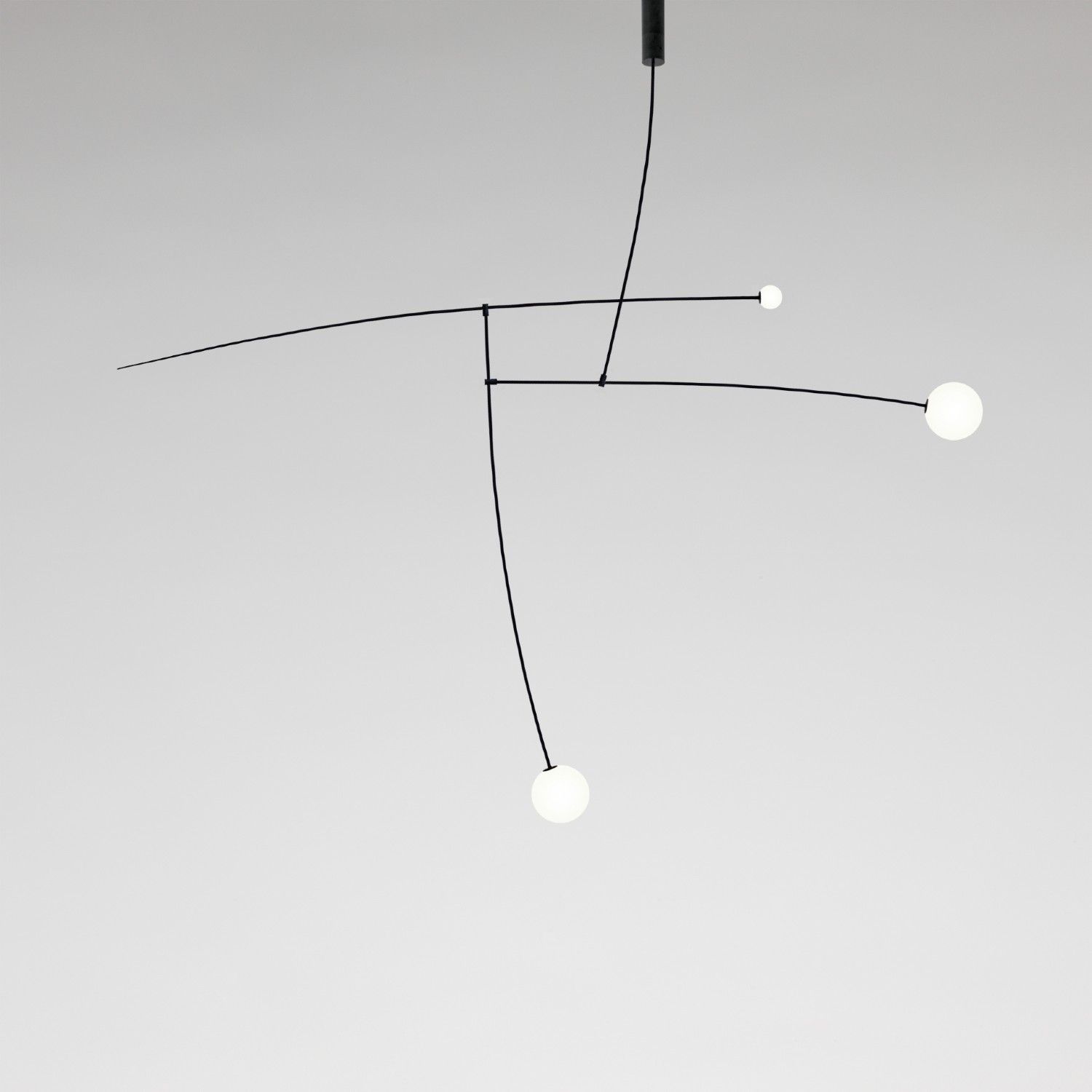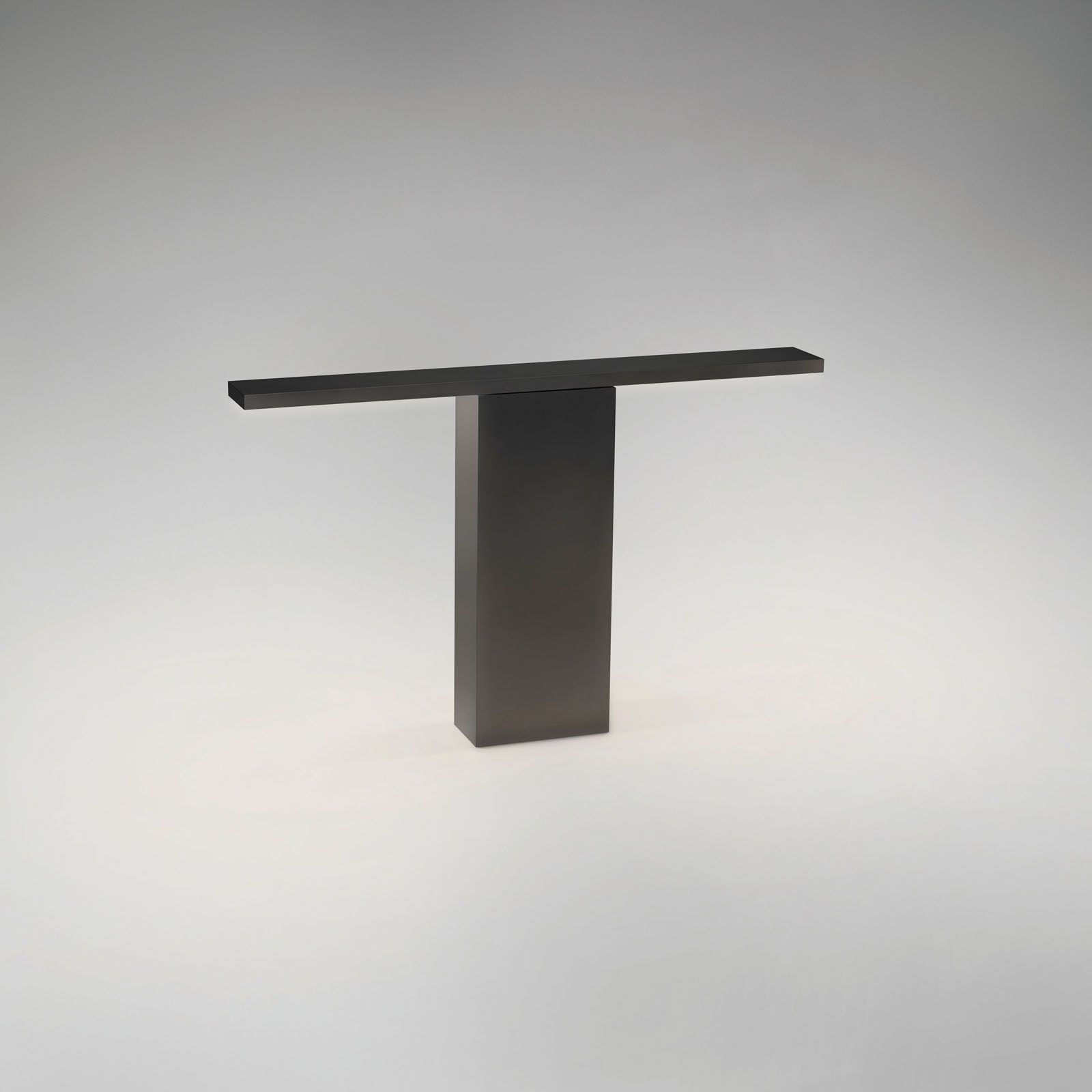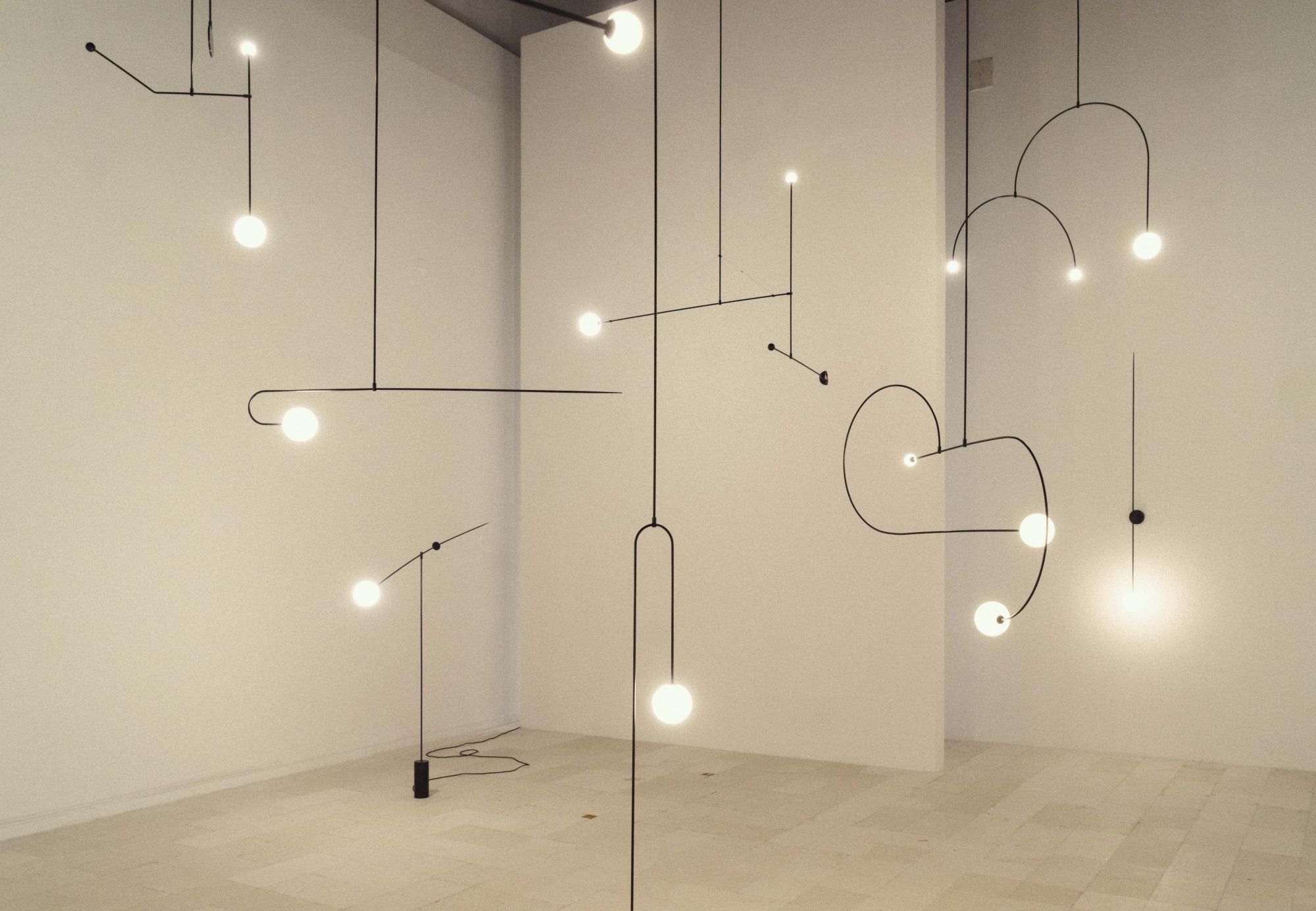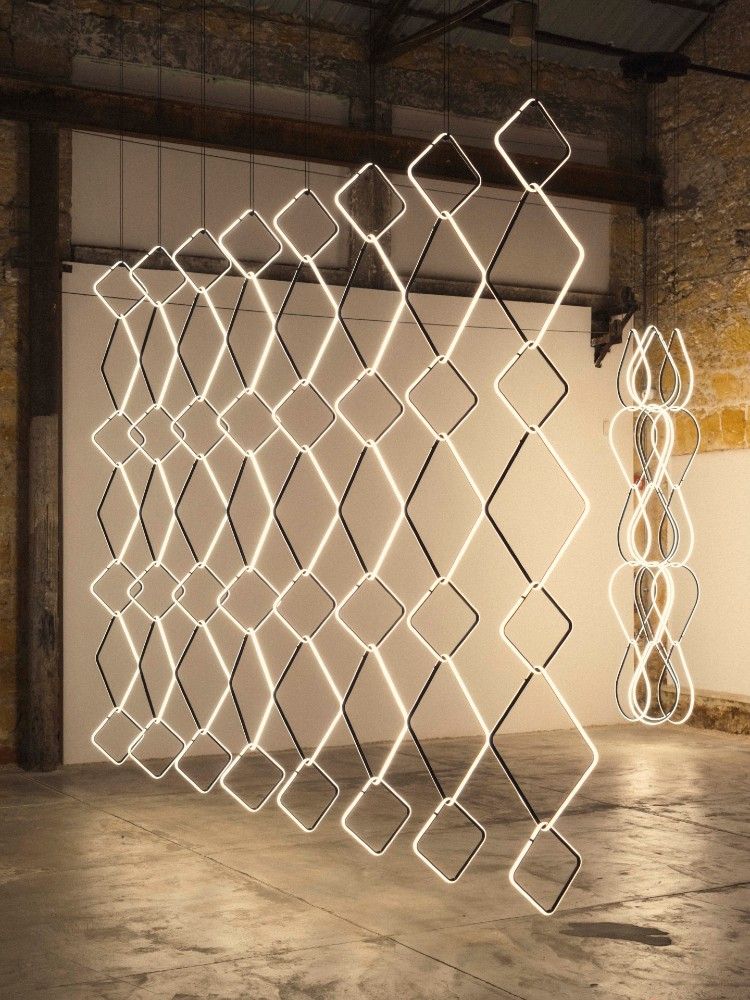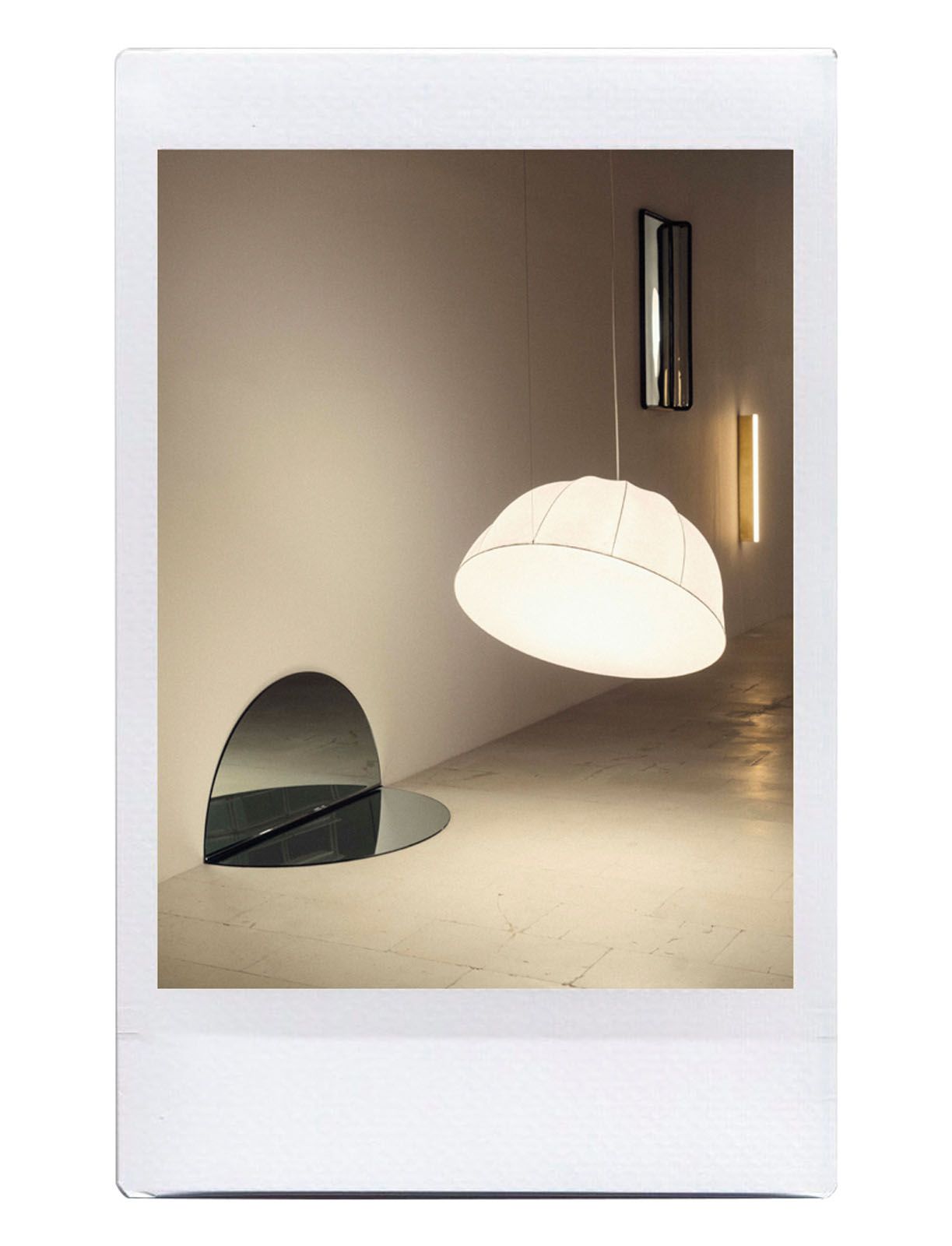The work of London-based designer Michael Anastassiades celebrates the purity of forms; he has been named the Designer of the Year at the 2020 edition of Maison&Objet Paris
Even as a child, Michael Anastassiades had a burning curiosity about the objects around him; how each item is made and its personal significance. “I was always interested in objects, in the sense of being very intrigued about what makes an object acquire value and mean something to us, more than just simply serving a function.”
Although the Cypriot-born, London-based designer had first trained as an engineer, his artistic streak sparked his desire to take on a more creative route. Becoming an industrial designer seemed to combine the best of both worlds. “My dream was to become an artist, but at some point I realised I had a very practical approach to things, so that’s why I became a designer instead,” he says.
See also: 7 Lighting Pieces For The Minimalist
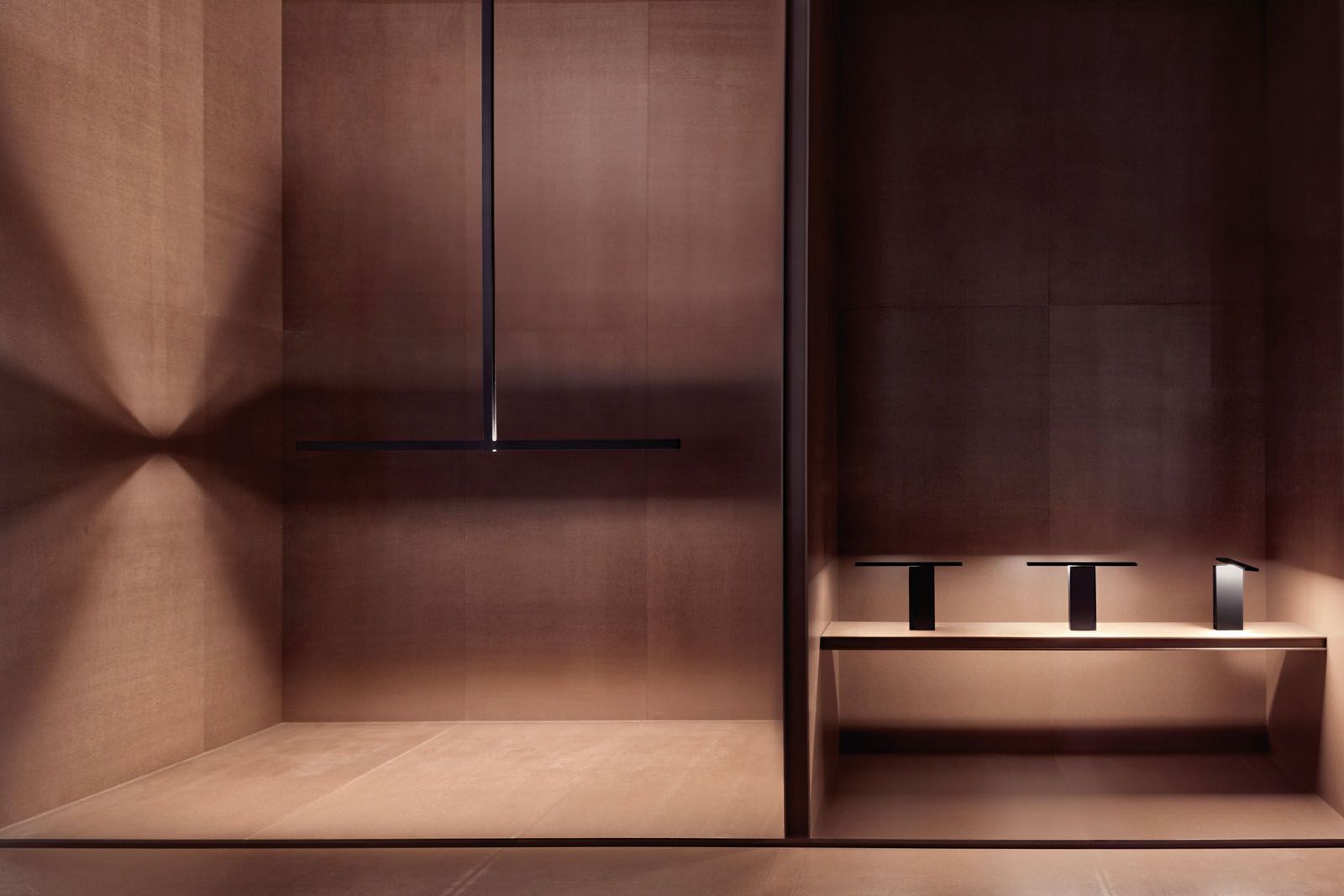
Among his most famous designs is the Mobile chandelier, which has a minimalist form that appears like a floating sculpture. The 52-year-old has since designed 16 versions of it, moving from angular structures to pendant lights with increasingly sinuous shapes; the most recent editions feature slim metal rods like calligraphy strokes.
“I started with very linear configurations for these pieces and then slowly, I moved into more geometric forms and curves,” he says, while speaking to us at the Euroluce fair during Milan Design Week. “What you see here today are more organic curves; kind of like drawings and gestures."
See also: 10 Design Trends That Will Inspire You To Redecorate Your Home



